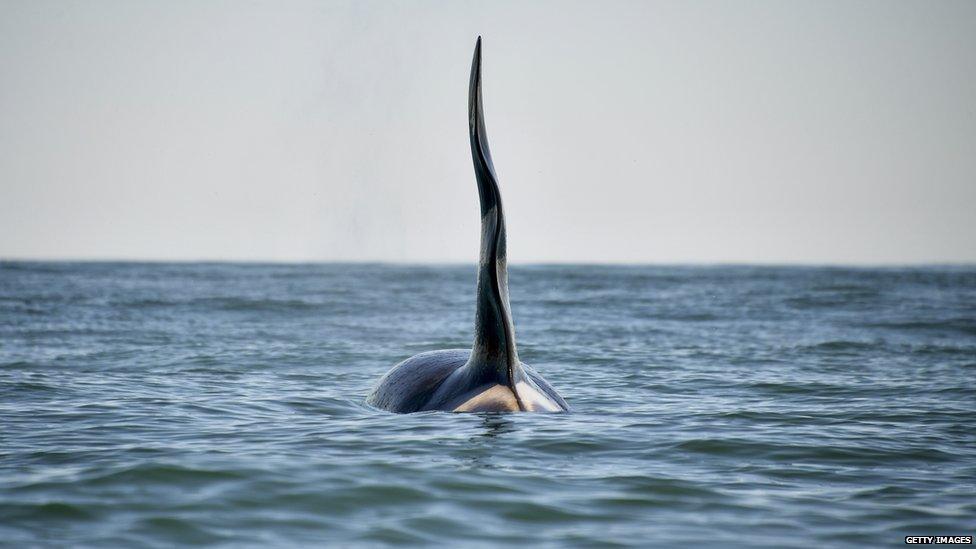Pollution threatens the future of Killer Whales
- Published

A group of ecologists say Orcas, also known as killer whales, are likely to be extinct in British waters within 100 years.
It's because of chemicals that were widely used in products like paint and glue nearly forty years ago.
The chemicals were banned but they continue to seep into the oceans from old landfill sites.
The findings have come from the Zoological Society of London. It took part in a global study which found around half of the world's killer whales are under serious threat after taking in the chemicals.
Toxic chemicals in the ocean are eaten by plankton that are then eaten by fish which are eaten by the Orcas.
And they've affected Orcas ability to have a babies - called calves.
The are only eight Orcas that live on the west coast of Scotland and they have not produced a calf in over 20 years.
Populations living in clean waters won't be affected. Orcas in places like the Antarctic and the Arctic will still be able to increase their numbers by having babies.
But for those living in the most polluted seas, the next 30-50 could be tough.
- Published5 June 2015
- Published6 January 2017
- Published26 January 2017
- Published20 June 2018
- Published2 August 2018
